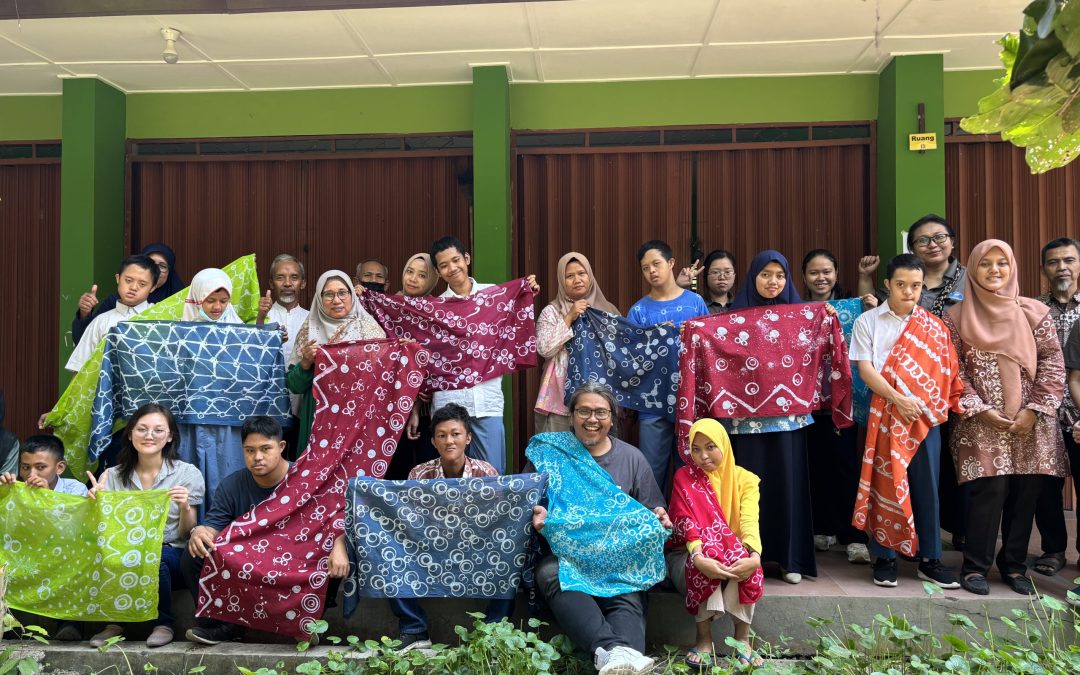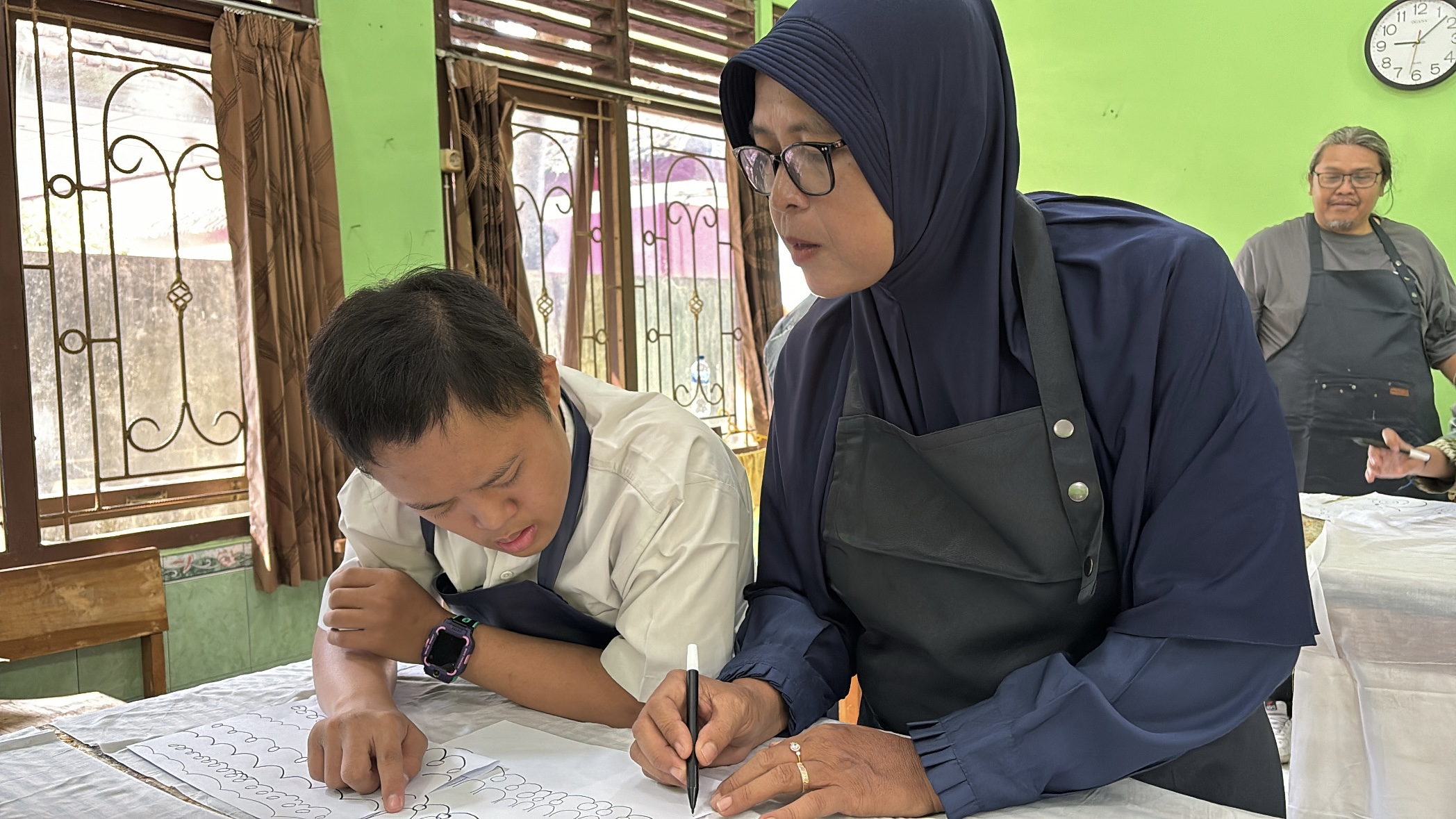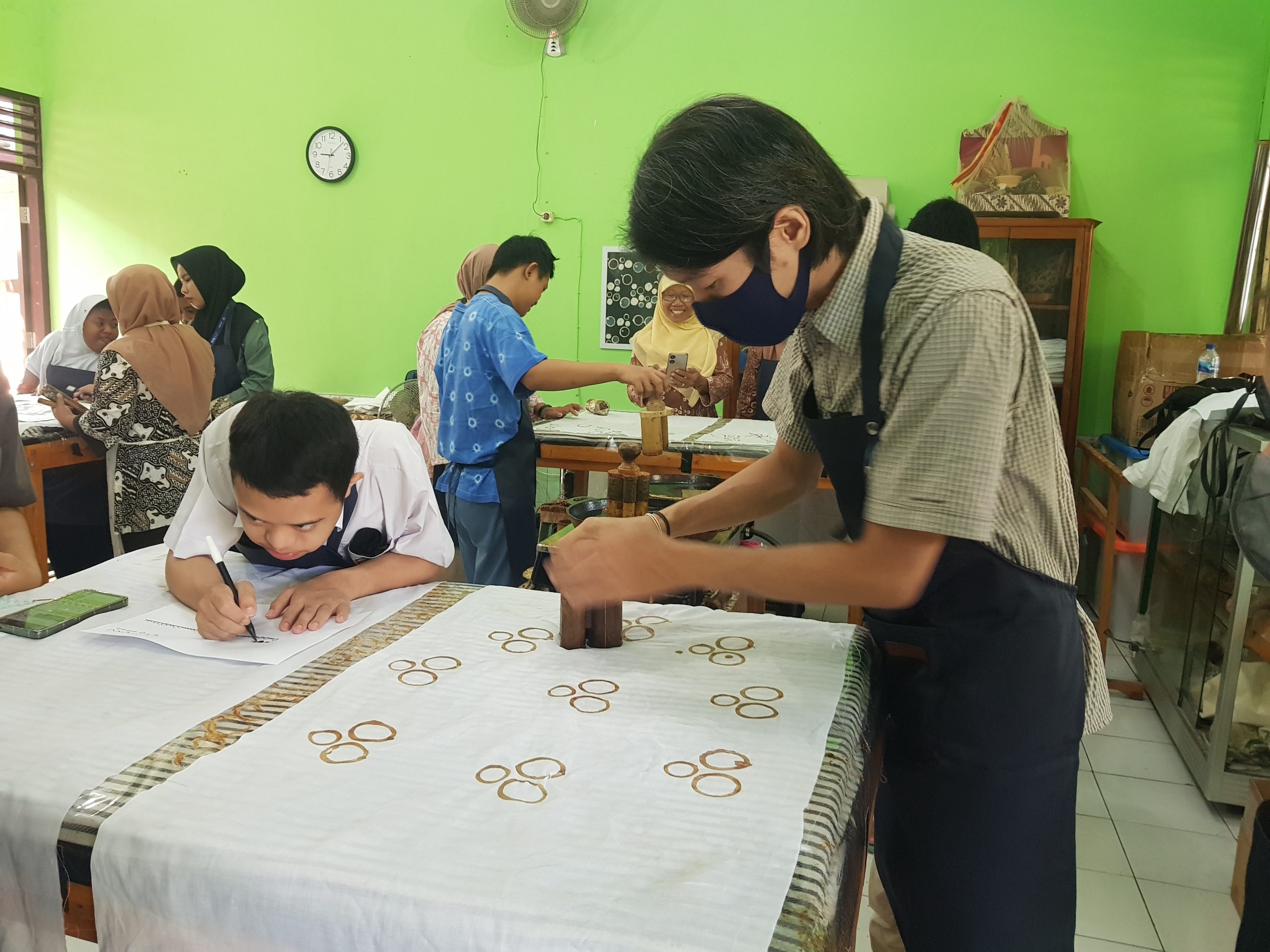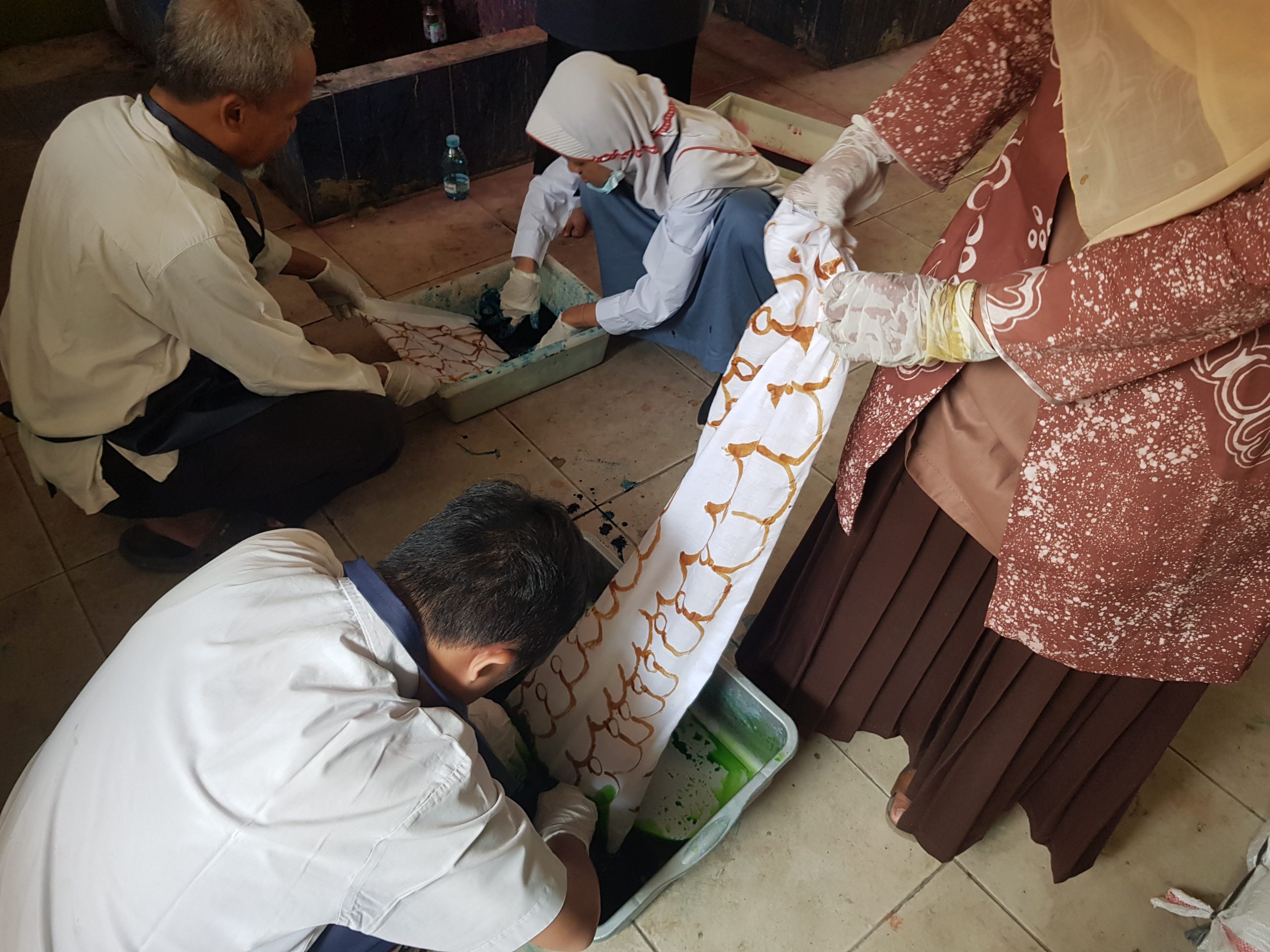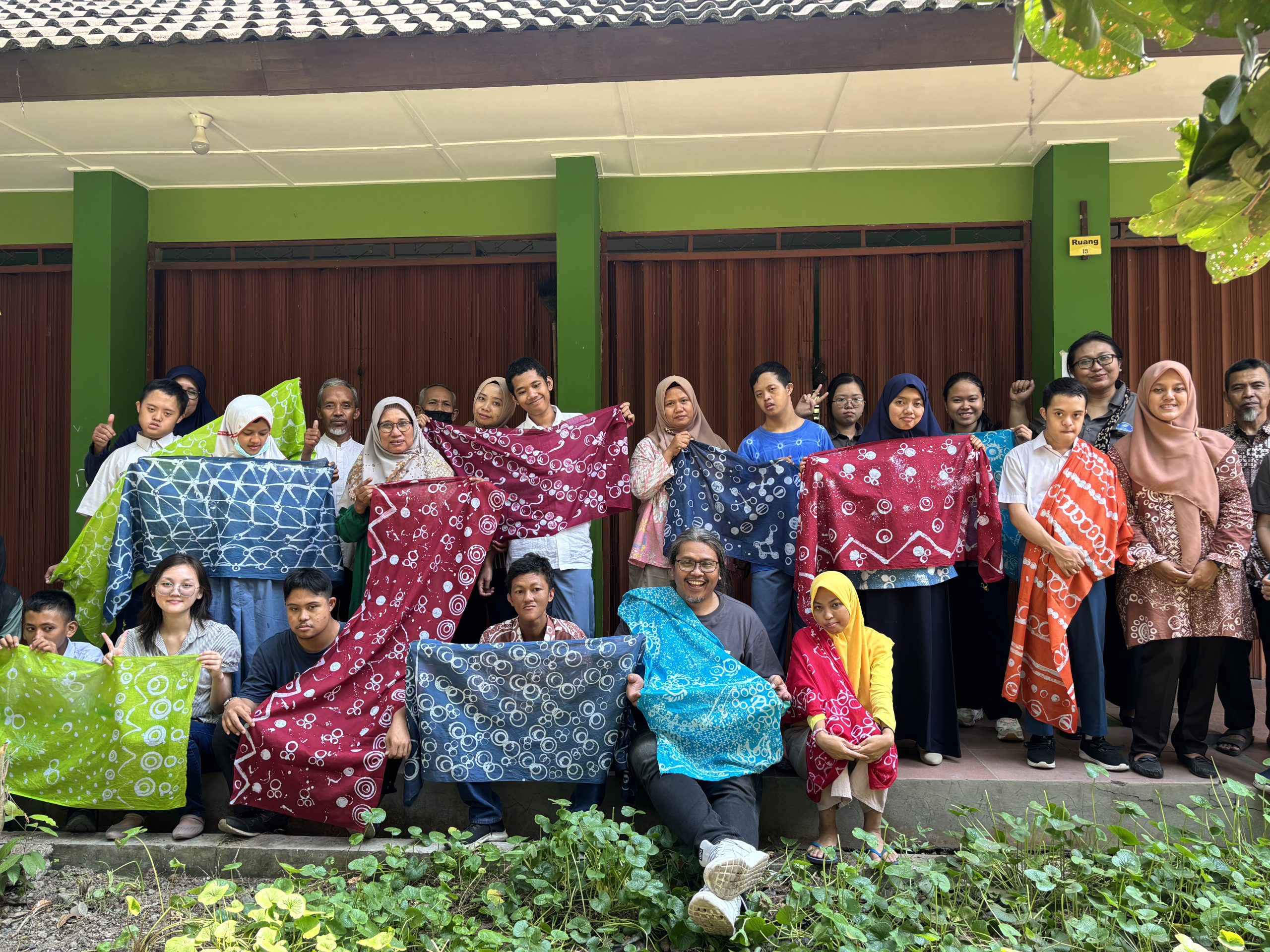Children with intellectual disabilities require strong support and meaningful interactions with their parents, particularly in developing self-awareness and fostering independence. However, parental engagement often remains limited due to low acceptance of their children’s capabilities. Without sufficient understanding and interaction, children with intellectual disabilities may become more dependent on others as they transition into adulthood.
As an educational institution, Universitas Kristen Duta Wacana (UKDW) Yogyakarta plays a vital role in addressing societal challenges through community service initiatives, which are part of the university’s threefold mission of higher education: education, research, and community service. UKDW is committed to sharing knowledge, developing effective methods, and acting as a catalyst for strengthening networks among stakeholders. This aligns with UKDW’s vision as a Sustainable Entrepreneurial Research University (SERU), which prioritizes inclusivity.
In line with this mission, a team of UKDW faculty members, including Winta Tridhatu S., S.Ds., M.Sc., Ph.D., Winta Adhitia Guspara, S.T., M.Sn., and Dr. Yustina Nuke Ardiyan, M.Biomed., along with two students, explored ways to enhance self-expression among children with intellectual disabilities while engaging their parents through Batik Umpluk, a form of creative therapy. This initiative was carried out in collaboration with Yayasan Insani Down Syndrome Indonesia (YIDSI) and Yogyakarta State Special Education School (SLB Negeri Pembina). Batik Umpluk, developed by fashion design teachers and batik practitioners, is a copyrighted batik design technique. UKDW’s involvement aimed to further refine the creative process of Batik Umpluk, drawing inspiration from Yogyakarta’s aesthetics and adapting it to the needs of its partners.
According to Winta Tridhatu, who led the initiative, the program aimed to provide a creative space for children with intellectual disabilities to express themselves while strengthening their bond with their parents. “Based on our evaluation, Batik Umpluk creative therapy has great potential as an effective method to enhance the connection between parents and their children with intellectual disabilities,” she explained.
The program was structured into three key phases: building emotional connections (rasa), introducing techniques and tools (cara), and fostering creativity (kreasi). The Batik Umpluk process was designed to be simple and accessible, ensuring that both parents and children, regardless of prior experience, could participate with ease. The motifs created independently by the participants were inspired by traditional Yogyakarta expressions such as Golong Gilig, Gandeng Renteng, Pala Gumantung, Pala Kasimpar, Gugur Gunung, and Holopis Kontul Baris.
A teacher from SLB Negeri Pembina Yogyakarta ****expressed appreciation for the program, noting that it allowed parents to witness their children’s motor and cognitive skills firsthand. This visibility is crucial in ensuring that the skills taught at school are reinforced and continued at home. The success of the program also led to the establishment of the Batik Umpluk Cooperative by the two partner organizations and participating parents, providing a sustainable pathway toward independence for children with intellectual disabilities.
To further support the initiative, the team also conducted a workshop on first aid for burns, recognizing the risks associated with the batik-making process and the general lack of awareness regarding safety measures. “The Batik Umpluk creative therapy program was presented at the 9th National Conference on Community Service (Sendimas) in Semarang last year, where it received the Best Paper award. Through this initiative, we hope to promote mental well-being, confidence, and independence for children with intellectual disabilities while also opening up creative opportunities that could evolve into entrepreneurial ventures,” concluded Winta Tridhatu. [humasukdw/trans.drr]
